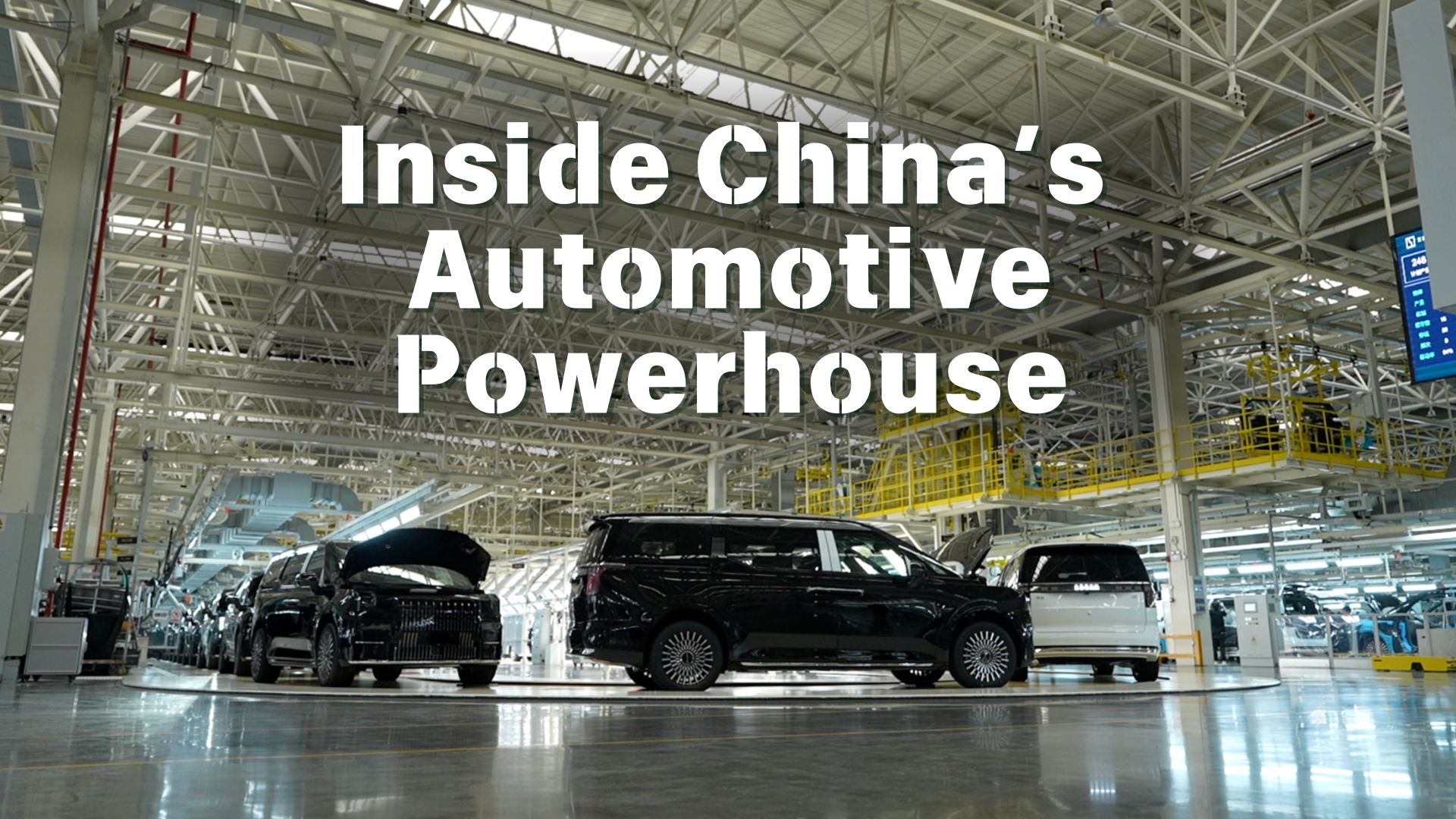By continuing to browse our site you agree to our use of cookies, revised Privacy Policy and Terms of Use. You can change your cookie settings through your browser.
I agree
Search Trends
CHOOSE YOUR LANGUAGE
- Albanian Shqip
- Arabic العربية
- Belarusian Беларуская
- Bengali বাংলা
- Bulgarian Български
- Cambodian ខ្មែរ
- Croatian Hrvatski
- Czech Český
- English English
- Esperanto Esperanto
- Filipino Filipino
- French Français
- German Deutsch
- Greek Ελληνικά
- Hausa Hausa
- Hebrew עברית
- Hungarian Magyar
- Hindi हिन्दी
- Indonesian Bahasa Indonesia
- Italian Italiano
- Japanese 日本語
- Korean 한국어
- Lao ລາວ
- Malay Bahasa Melayu
- Mongolian Монгол
- Myanmar မြန်မာဘာသာ
- Nepali नेपाली
- Persian فارسی
- Polish Polski
- Portuguese Português
- Pashto پښتو
- Romanian Română
- Russian Русский
- Serbian Српски
- Sinhalese සිංහල
- Spanish Español
- Swahili Kiswahili
- Tamil தமிழ்
- Thai ไทย
- Turkish Türkçe
- Ukrainian Українська
- Urdu اردو
- Vietnamese Tiếng Việt
Copyright © 2024 CGTN.
京ICP备20000184号
CHOOSE YOUR LANGUAGE
- Albanian Shqip
- Arabic العربية
- Belarusian Беларуская
- Bengali বাংলা
- Bulgarian Български
- Cambodian ខ្មែរ
- Croatian Hrvatski
- Czech Český
- English English
- Esperanto Esperanto
- Filipino Filipino
- French Français
- German Deutsch
- Greek Ελληνικά
- Hausa Hausa
- Hebrew עברית
- Hungarian Magyar
- Hindi हिन्दी
- Indonesian Bahasa Indonesia
- Italian Italiano
- Japanese 日本語
- Korean 한국어
- Lao ລາວ
- Malay Bahasa Melayu
- Mongolian Монгол
- Myanmar မြန်မာဘာသာ
- Nepali नेपाली
- Persian فارسی
- Polish Polski
- Portuguese Português
- Pashto پښتو
- Romanian Română
- Russian Русский
- Serbian Српски
- Sinhalese සිංහල
- Spanish Español
- Swahili Kiswahili
- Tamil தமிழ்
- Thai ไทย
- Turkish Türkçe
- Ukrainian Українська
- Urdu اردو
- Vietnamese Tiếng Việt
Copyright © 2024 CGTN.
京ICP备20000184号
互联网新闻信息许可证10120180008
Disinformation report hotline: 010-85061466




















A BYD vehicle carrier ship departs on its maiden voyage to Brazil in Taicang Port, Jiangsu Province, China, April 27, 2025. /VCG
Editor's note: Guo Bowei is an associate professor at the School of Applied Economics at Renmin University of China, and Huang Xuechen is a graduate student in Carbon Economics at the School of Applied Economics at Renmin University of China. The article reflects the authors' opinions and not necessarily the views of CGTN.
In the game of Go, the term houshi, or "thick influence," refers to a solid early-game formation that may not deliver immediate gains but can ultimately prove decisive. Today, China's electric vehicle (EV) industry is demonstrating its own form of houshi as years of groundwork translate into rapid overseas expansion and growing global recognition.
Chinese EV brands dominate many overseas markets, demonstrating robust global competitiveness
Since 2021, China's automobile exports have surged. That year, exports exceeded two million units, surpassing South Korea and rising to third globally. In 2022, China overtook Germany, and by 2023, it became the world's largest car exporter, with nearly five million vehicles shipped. Electric vehicles have played a pivotal role in this ascent.
In 2023 alone, China exported 1.203 million EVs, marking a 77.6 percent year-on-year increase. These exports reached a wide array of countries and regions. Chinese brands now rank among the top EV sellers in many overseas markets, gaining traction with global consumers and showcasing robust international competitiveness.
This competitiveness is reflected not only in scale, but also in improving quality and market structure. Major destinations now include Russia, Mexico, and the United Arab Emirates, with growing penetration into the European Union via hubs such as Belgium. Chinese companies are building a multilayered global presence. Their offerings span battery electric and plug-in hybrid models, ranging from passenger cars to electric buses and urban logistics vehicles. This diverse portfolio allows for stronger pricing power and increased profit potential in global markets.
A van with brand new electric vehicles from China stands in a parking lot near Berlin, Germany, October 18, 2024. /VCG
Moreover, their international strategies have become more diversified. Beyond traditional vehicle exports, companies are engaging in knock-down kit exports, overseas manufacturing, and even brand acquisitions. More firms are establishing factories, service networks, and sales channels abroad, localizing operations to enhance service capabilities and deepen brand loyalty.
Three driving forces behind China's EV industry success domestically and globally
What underpins this global expansion is the industry's accumulated houshi – an integrated set of advantages built on supply chain strength, technological innovation, and consistent policy support.
First is China's unparalleled EV supply chain. The country boasts the world's most comprehensive and efficient system, covering everything from upstream raw materials, batteries, and power electronics to vehicle assembly, software, charging infrastructure, and after-sales service. This integrated system ensures delivery speed, supply stability, and cost efficiency – key advantages in global competition.
Second is the dual engine of technology and market scale. China's vast domestic market has provided an ideal testing ground for innovation. In recent years, Chinese automakers have made breakthroughs in autonomous driving, in-car operating systems, and other core technologies. In 2023, China's EV production and sales rose by 35.6 percent and 37.9 percent respectively, accounting for nearly 70 percent of global EV sales.
A customer tries out a BYD car at the Hohhot International Auto Show, Inner Mongolia, China, May 30, 2025. /VCG
Third is strong and sustained policy support. Over the past decade, government incentives – ranging from R&D support to tax breaks – have provided stability and predictability for the EV sector. National strategies such as the "dual carbon" goals and the Belt and Road Initiative have further guided firms toward green and global development paths, laying the institutional foundation for international expansion.
China's auto makers are cultivating global brand power while actively exploring international collaboration
Building on this, Chinese EV companies are cultivating true global brand power. BYD has become a key supplier of electric buses across Latin America. Emerging players like NIO and Zeekr are targeting premium markets. By developing direct-to-consumer channels, enhancing user experience, and embedding themselves in local ecosystems, they are breaking free from outdated stereotypes of "cheap Chinese cars" and establishing reputations for high quality and smart innovation.
At the same time, Chinese companies are actively exploring international technical cooperation and standard-setting initiatives. By working with global partners to co-develop industry standards, they are strengthening their voice in the global value chain and promoting deeper integration of the global EV industry.
This rise in brand strength is not the result of short-term marketing but the natural outcome of long-term capability. As the global auto industry undergoes a once-in-a-century transformation, EVs have become an irreversible trend. At this turning point, China – with its industrial foundation, innovation engine, and open global strategy – has taken the lead in shaping the electric future.
Over the next decade, global branding will be central to Chinese EV firms. This is not merely about increasing exports, but about delivering value, expressing culture, and gaining trust. From houshi to brand power, and from product exports to global influence, China's electric vehicle industry is steering the world toward a smarter, more sustainable future.